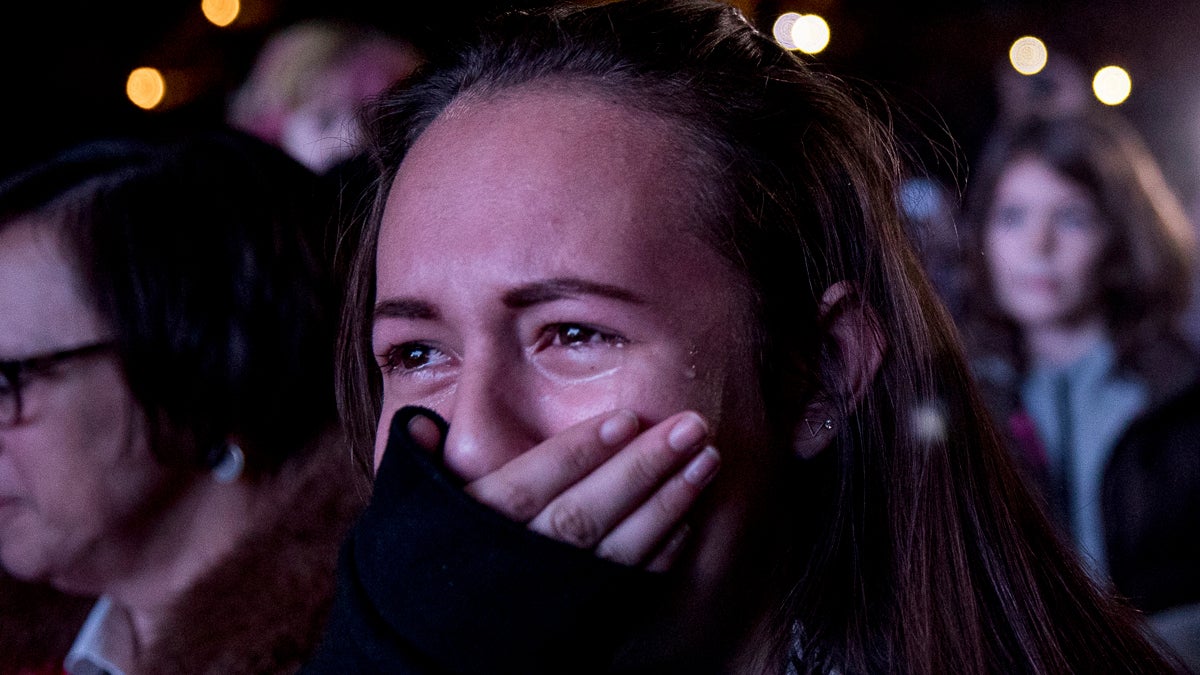Why isn’t prospect of first woman president drawing more attention?
Listen
For some
Gender issues are front and center in this presidential election.
Lewd comments from Donald Trump have enraged some and raised discussions on sexual assault.
Infidelities and sexual transgressions surrounding Hillary Clinton’s husband — as well as the husband of her top aide — have dominated the news cycle recently.
But one thing largely absent from this seemingly endless campaign is substantive discussion of the historic significance of the likelihood the U.S. will elect its first female president.
The long battle for the ballot
It’s been 96 years since women in the U.S. won the right to vote after a long struggle in which women were imprisoned and tortured as they tried to attain a basic civil right.
But, in the course of that century, parity remains elusive; even today, women hold just 20 percent of congressional seats.
For the first time in history, though, a woman is close to winning the White House, shattering what the candidate calls the “hardest, highest glass ceiling” in the world.
Yet, what would have been unthinkable a few decades ago doesn’t strike some as all that remarkable.
“I’ve had a lot of strong women in my life so, that idea of women being powerful has kind of always been there,” said Kim Selig, a 21-year-old student at Temple University.
Like many other young women, Selig said it would be “silly” to vote for a woman simply because of her gender.
But for 96-year-old Edith Wilkinson, it’s been a long wait.
When Wilkinson was born, her mother didn’t have the right to vote.
This year, one of Wilkinson’s granddaughters will be taking her to the polls, from her retirement home in Mercer County, New Jersey.
Wilkinson, who said she’s delighted to be voting for a woman president, said she admires Clinton and other women candidates for their resilience.
“They’ve always been shot down by men one way or another. But Hillary Clinton has been working almost all of her life to have the skills, the ability to debate and stand up to men,” said Wilkinson. “And they’re still trying to tear her down, but they’re not going to do it.”
Wilkinson’s daughter Sue Hill said she is glad to see someone of her gender at the top of the ticket.
“When my mother was voting, she was voting for men, there was no choice,” said Hill, 66. “It was the Republican man or the Democratic man.
Hill said it was only a matter of time before a woman was elected to lead the country.
“It was inevitable. If it wasn’t this year, it would have been eventually,” she said.
Hill and her mother, along with Wilkinson’s 24-year-old niece, said it will be significant if Clinton returns to the White House as president.
Historical perspective overshadowed
All three women previously voted for Barack Obama.
But when Obama ran in 2008, election conversations often focused on the fact that he would be the nation’s first black president. So why has there been so little attention on the possibility of the first woman taking on that role?
“This particular presidential campaign … we’re really moving from day to day, and we’re not looking at any broader historical nature of anything because there’s no room or time to do that,” said Jennifer Lawless, the director of the Women and Politics Institute at American University.
Unlike Obama, Clinton has essentially been running for president for eight years — dulling some of the novelty of a woman as commander in chief.
Because Clinton is so polarizing, Lawless said, some who would be excited about the first female president just aren’t talking about it.
And many women, in voting for Clinton, may be casting a ballot against Donald Trump because they think he’s so sexist.
“So, if there’s a larger gender gap, a little bit of it is because Clinton is able to mobilize women excited by her candidacy,” Lawless said. “But my bet is that a larger portion is because Trump is repelling them.”
When all votes are cast, is it possible that the first woman is elected president simply because her opponent is so offensive to so many women?
It may take years for historians to unravel the gender dynamics at play in the 2016 presidential election and whether that will transform the role of women in politics.
WHYY is your source for fact-based, in-depth journalism and information. As a nonprofit organization, we rely on financial support from readers like you. Please give today.


